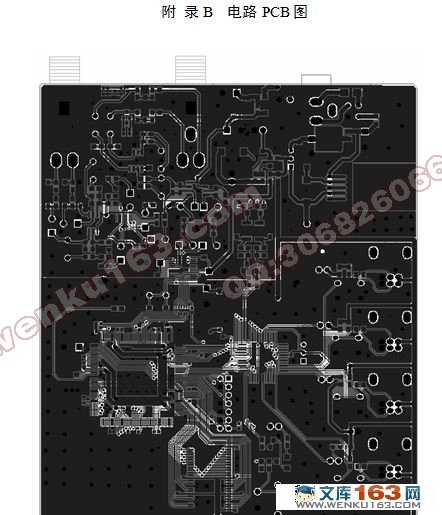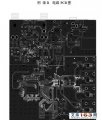吉他效果器的研究与设计
来源:wenku163.com 资料编号:WK1638004 资料等级:★★★★★ %E8%B5%84%E6%96%99%E7%BC%96%E5%8F%B7%EF%BC%9AWK1638004
资料介绍
吉他效果器的研究与设计(19000字)
摘 要
随着科技的不断进步,效果器引入了微处理器技术和数字音频处理技术,与传统效果器相比,新型效果器以其智能化、个性化、高保真等优点迅速应用到各种声音设备中,深受广大音乐爱好者的青睐。
本文介绍了基于TI TMS320VC5501 DSP的吉他效果器的设计。文章主要从硬件和软件两个方面进行分析、设计与实现。在硬件方面,主要对DSP、CODEC、单片机等芯片的连接电路、模拟信号的处理电路以及人机交互电路进行了详细的分析;在软件方面,主要对各种芯片的初始化和系统的工作流程进行了分析与设计,与此同时,本设计还详细介绍了颤音、延迟、震音、合唱、镶边、移相等几种常用的效果算法。经实验证明,本效果器实现的数字效果良好。
关键词: 吉他效果器 DSP CODEC 单片机 算法
The Design And Research of Guitar Effect Processor
ABSTRACT
With the development of technology, the Microprocessor Unit (MPU) and digital audio processing technology are introduced into the effector. Compared with the traditional effector, the new type of effector is quickly applied to various sound equipments with its intelligence, individuation, and hi-fi advantages, and it also take the fancy of the music lovers.
This thesis introduces a design of guitar effect processor which is based on TI TMS320VC5501 DSP. Hardware and software systems are separately introduced in this paper. For the hardware, the thesis mainly makes a detailed discussion of some hardware function models ,which including the interface circuits of DSP 、CODEC、MCU and etc, analog signal processing circuits,and human-machine interaction circuits. For the software, the thesis introduces the initialization of all kinds of chips and the workflow of system. At the same time, this design also introduces the several common effect algorithm in detail , such as vibrato、 delay 、 tremolo、 chorus、 flanger 、phase. The experiment proves that the digital effects of the effector based on the above system are well.
Key words: Guitar Effect Processor DSP CODEC MCU Algorithm

目 录
摘 要 I
ABSTRACT II
1 绪论 1
1.1论文研究背景 1
1.2国内外研究现状 1
1.3论文主要内容 2
2 系统总设计 3
2.1系统要求 3
2.2系统方案的确定 3
2.3芯片选型 4
2.3.1 DSP选型 4
2.3.2单片机选型 5
2.3.3 CODEC选型 5
2.3.4 SDRAM选型 5
3 硬件设计 6
3.1 DSP与单片机的连接 6
3.2 DSP与CODEC的连接 7
3.3 DSP与SDRAM的连接 10
3.4电源模块 10
3.5模拟信号处理电路 11
3.5.1 信号放大问题 12
3.5.2 阻抗匹配问题 13
3.6 信号选通模块 14
3.7人机交互电路 15
4 系统软件设计 17
4.1系统总工作流程 17
4.2系统的初始化 18
4.2.1单片机的初始化 18
4.2.2 DSP的初始化 19
4.2.4 SDRAM的初始化 22
4.2.5 CODEC的初始化 23
5 音频算法的分析与设计 25
5.1 Delay (延迟) 25
5.2 Tremolo(震音) 26
5.3 Vibrato (颤音) 27
5.4 Chorus (合唱) 28
5.5 Flanger(镶边) 29
5.6 Phase (移相) 30
6 系统调试 32
7 总结 33
参考文献 34
附录A 电路原理图 36
附录B 电路PCB图 37
附录C 单片机程序 38
附录D DSP程序 45
附录E Tremolo算法程序 51
附录F Delay算法程序 52
附录H Vibrato算法程序 54
附录I Chorus算法程序 55
附录J Flanger算法程序 57
附录K Phase算法程序 59
谢 辞 61
|



